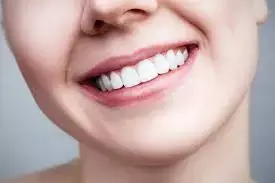- Home
- Medical news & Guidelines
- Anesthesiology
- Cardiology and CTVS
- Critical Care
- Dentistry
- Dermatology
- Diabetes and Endocrinology
- ENT
- Gastroenterology
- Medicine
- Nephrology
- Neurology
- Obstretics-Gynaecology
- Oncology
- Ophthalmology
- Orthopaedics
- Pediatrics-Neonatology
- Psychiatry
- Pulmonology
- Radiology
- Surgery
- Urology
- Laboratory Medicine
- Diet
- Nursing
- Paramedical
- Physiotherapy
- Health news
- Fact Check
- Bone Health Fact Check
- Brain Health Fact Check
- Cancer Related Fact Check
- Child Care Fact Check
- Dental and oral health fact check
- Diabetes and metabolic health fact check
- Diet and Nutrition Fact Check
- Eye and ENT Care Fact Check
- Fitness fact check
- Gut health fact check
- Heart health fact check
- Kidney health fact check
- Medical education fact check
- Men's health fact check
- Respiratory fact check
- Skin and hair care fact check
- Vaccine and Immunization fact check
- Women's health fact check
- AYUSH
- State News
- Andaman and Nicobar Islands
- Andhra Pradesh
- Arunachal Pradesh
- Assam
- Bihar
- Chandigarh
- Chattisgarh
- Dadra and Nagar Haveli
- Daman and Diu
- Delhi
- Goa
- Gujarat
- Haryana
- Himachal Pradesh
- Jammu & Kashmir
- Jharkhand
- Karnataka
- Kerala
- Ladakh
- Lakshadweep
- Madhya Pradesh
- Maharashtra
- Manipur
- Meghalaya
- Mizoram
- Nagaland
- Odisha
- Puducherry
- Punjab
- Rajasthan
- Sikkim
- Tamil Nadu
- Telangana
- Tripura
- Uttar Pradesh
- Uttrakhand
- West Bengal
- Medical Education
- Industry
Mouthwashes increase surface roughness, color changes and decrease surface hardness of resin composites

Mouthwashes had an effect on all resin composites evaluated by a significant decrease of surface hardness, and an increase of roughness and color values suggests a recent study published in the International Dental Journal
A study was conducted to investigate the effect of various mouthwashes for COVID-19 prevention on surface hardness, roughness and color changes of bulk-fill and conventional resin composites and determine the pH and titratable acidity of mouthwashes.
Four hundred and eighty specimens were fabricated in cylindrical molds (10 mm in diameter and 2 mm in thickness). Before immersion, baseline data of surface hardness, roughness, and color values were recorded. Each product of specimens (Filtek Z350XT, Premise, Filtek One Bulk Fill Restorative, SonicFil 2) were divided into 4 groups for 0.2% povidone iodine, 1% hydrogen peroxide, 0.12% chlorhexidine, and deionized water (serving as a control). The specimens were immersed in mouthwashes for 1 minute and then stored in artificial saliva until 24 hours. This process was repeated for 14 days. After immersion, surface hardness, roughness and color values of specimens were measured at 7 and 14 days. The data were statistically analyzed by two-way repeated ANOVA, Tukey's HSD and a t-test (p<0.05).
Results
After immersion, all mouthwashes caused significantly lower surface hardness, greater roughness and color values (p<0.05) on all resin composites tested.
Mouthwashes had an effect on all resin composites evaluated by a significant decrease of surface hardness, and an increase of roughness and color values (p<0.05). Immersion in mouthwashes for COVID-19 prevention increased surface roughness and color changes and decreased surface hardness of the resin composites evaluated. Within the resin composite materials tested in this study, the greatest degradation was found in Premise after immersion in 0.2% povidone iodine.
Reference:
Saijai Tanthanuch, Boonlert Kukiattrakoon, Chailuck Naiyanart, Tanyanat Promtong, Panuwit Yothinwatthanabamrung, Suttida Pumpua, Effect of Mouthwashes for COVID-19 Prevention on Surface Changes of Resin Composites, International Dental Journal, 2022, ISSN 0020-6539, https://doi.org/10.1016/j.identj.2022.10.004
Dr. Shravani Dali has completed her BDS from Pravara institute of medical sciences, loni. Following which she extensively worked in the healthcare sector for 2+ years. She has been actively involved in writing blogs in field of health and wellness. Currently she is pursuing her Masters of public health-health administration from Tata institute of social sciences. She can be contacted at editorial@medicaldialogues.in.
Dr Kamal Kant Kohli-MBBS, DTCD- a chest specialist with more than 30 years of practice and a flair for writing clinical articles, Dr Kamal Kant Kohli joined Medical Dialogues as a Chief Editor of Medical News. Besides writing articles, as an editor, he proofreads and verifies all the medical content published on Medical Dialogues including those coming from journals, studies,medical conferences,guidelines etc. Email: drkohli@medicaldialogues.in. Contact no. 011-43720751


